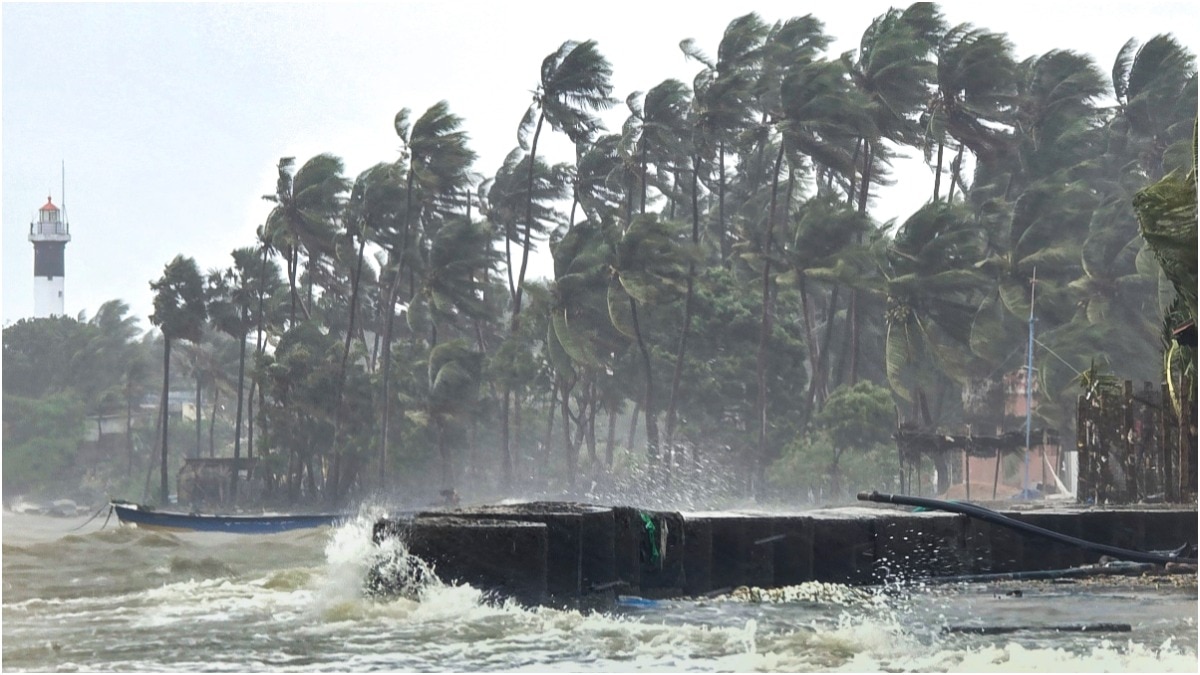Rapidly deepening cyclonic storm ‘Ditwa’ in the Bay of Bengal is moving towards the coasts of North Tamil Nadu, Puducherry and South Andhra Pradesh. The Meteorological Department (IMD) has issued an orange alert in these states. This weather system is moving in a north-northwest direction and is likely to reach southwest Bay of Bengal near the coastal areas of North Tamil Nadu, Puducherry and South Andhra Pradesh by the morning of November 30, 2025.
Cyclone Ditva was located about 490 km south of Chennai and 380 km south-southeast of Puducherry at 5:30 pm on 28 November. Season According to the department, this system may become stronger while reaching closer to the Indian coast. IMD has issued a warning of heavy to very heavy rainfall in Tamil Nadu and Puducherry, while extremely heavy rainfall (more than 20 cm) is likely in some areas. On the other hand, very heavy rains can be recorded in Coastal Andhra Pradesh and Rayalaseema on November 30.
Also read: Cyclone Ditva wreaks havoc in Sri Lanka, so far 56 dead, 21 missing due to floods and landslides
According to the Meteorological Department, from the morning of 29th November, winds are expected to blow at a speed of 70–80 km/hr on North Tamil Nadu and Puducherry coasts, which can reach up to 90 km/hr. This is likely to continue till the morning of 30th November. Due to the cyclone, waves of 0.2 to 0.5 meters high may arise in the sea, due to which there is a danger of submergence of low-lying areas in districts like Chengalpattu and Tiruvallur. The local administration has advised people to remain alert and move to safe places if necessary.
According to IMD, Cyclone Ditva may cause damage to mud houses, power and communication lines and standing crops like banana, papaya and paddy. Rapid relief and rescue measures are being taken in the coastal districts. Fishing activities along the coasts of Tamil Nadu, Puducherry and South Andhra Pradesh have been completely closed till December 1. Fishermen have been strictly advised not to go into the sea. Disaster management teams are on alert.
—- End —-
